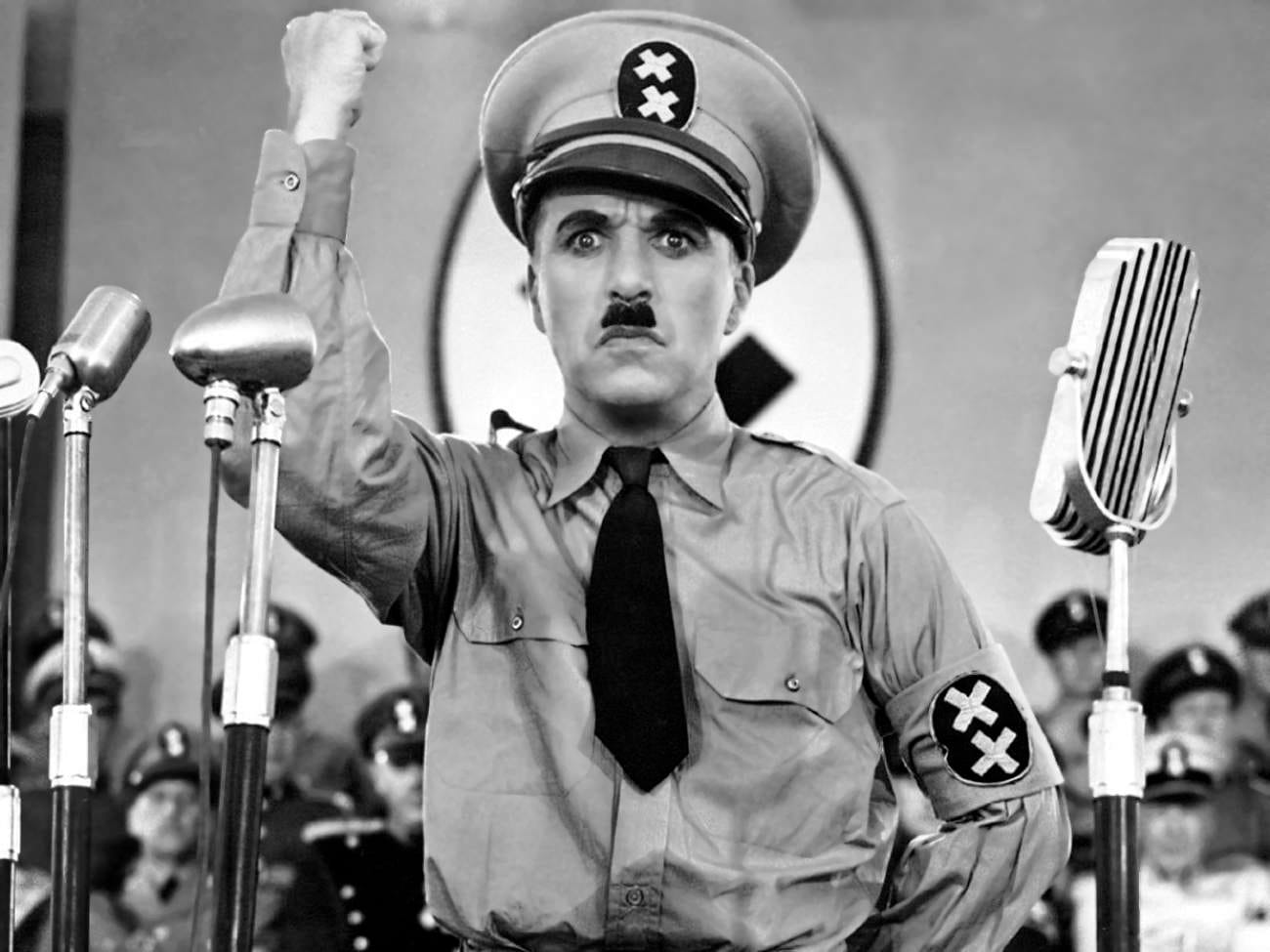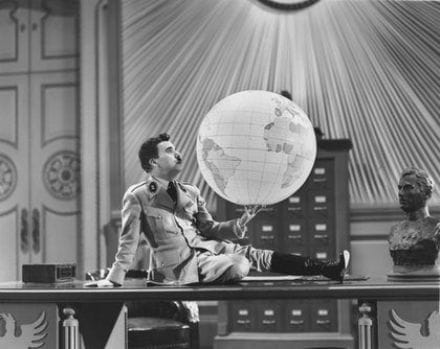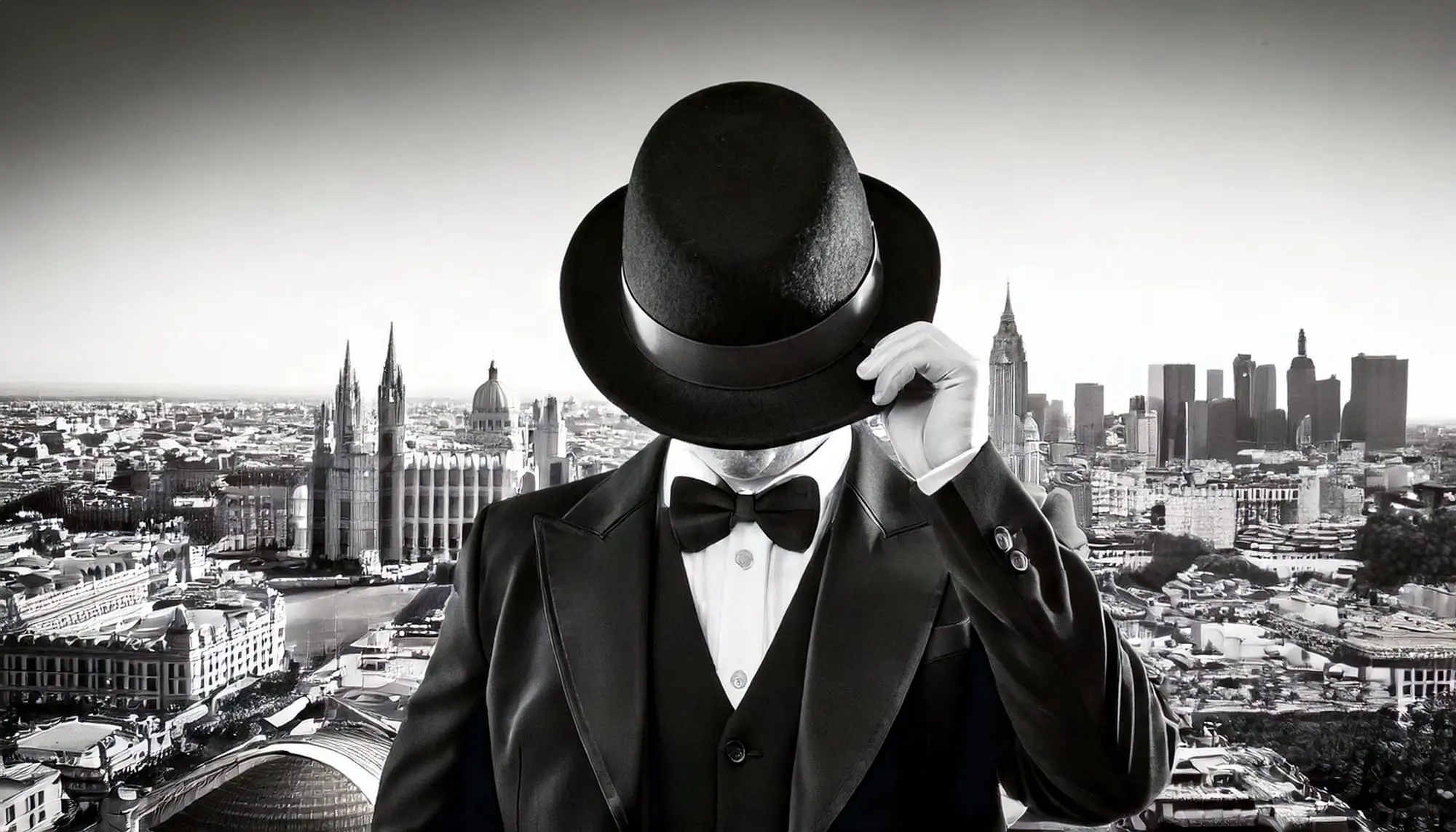
Charles Chaplin
He could turn a simple stumble into a masterpiece and a silent glance into a social commentary. A perfectionist wrapped in the Tramp’s suit, he was capable of mixing mischief with melancholy, making you smile, cry, and rethink capitalism – all in a single silent film.
#about
He had the soul of a poet, the manners of a vaudeville performer, and the persistence of someone willing to shoot one scene 342 times until it was just right.
#quotes
I remain just one thing, and one thing only — and that is a clown. It places me on a far higher plane than any politician.
#quotes
Life is a tragedy when seen in close-up, but a comedy in long-shot.
The Eiffel Tower had just been constructed in Paris and not yet opened to the public, Van Gogh was working on The Starry Night, and two boys to change the worldview of millions were born four days apart in 1889.
Neither Charles from London nor Adolf from Braunau am Inn (then Austria-Hungary) were first kids for their parents, but both were surviving extreme poverty in their childhood or adolescence.
A huge part of his childhood Charles spent near stage, surrounded by singers, dancers and actors due to his mother being a professional performer. Meanwhile, Adolf’s father did not want to see his son as a singer or artist (despite the boy’s attempts to master the skills), and the differences in their views were causing more and more parent-child conflicts.
Years later Charles Chaplin would make millions of people laugh without saying a word while Adolf Hitler would start converting his power into dictatorship and ruin millions of lives shouting his orders out.

Chaplin’s biggest power was laugh, so he started a scenario for a satirical black comedy film to condemn the dictatorship arisen in Europe by that time. It happened so that the very filming began a few days after the first bomb had marked the start of World War II and lasted for the other six months.
The Great Dictator put an end to Chaplin’s silent films and changed how his widely loved character of the Tramp was perceived but also became his most commercially successful work. Later though, Charles Chaplin would claim that were he aware of the real extent of cruelty people were experiencing during the war, he would have likely given up the idea of the film.
There are no recorded data on whether the main prototype of the film Adolf Hitler saw it, but according to unofficial statements, the dictator watched the film twice, alone and in silence.

"Just think, he's the madman, I'm the comic. But it could have been the other way around."
Charlie Chaplin
Final speech from The Great Dictator (1940)
@book

Academia: Insights From Inside
What do modern-day university graduates have in common with Isaac Newton? What was academic life of a female immigrant like less than 200 years ago? What are the alternatives if you skip academic education and what are the consequences if you take it really easy?
